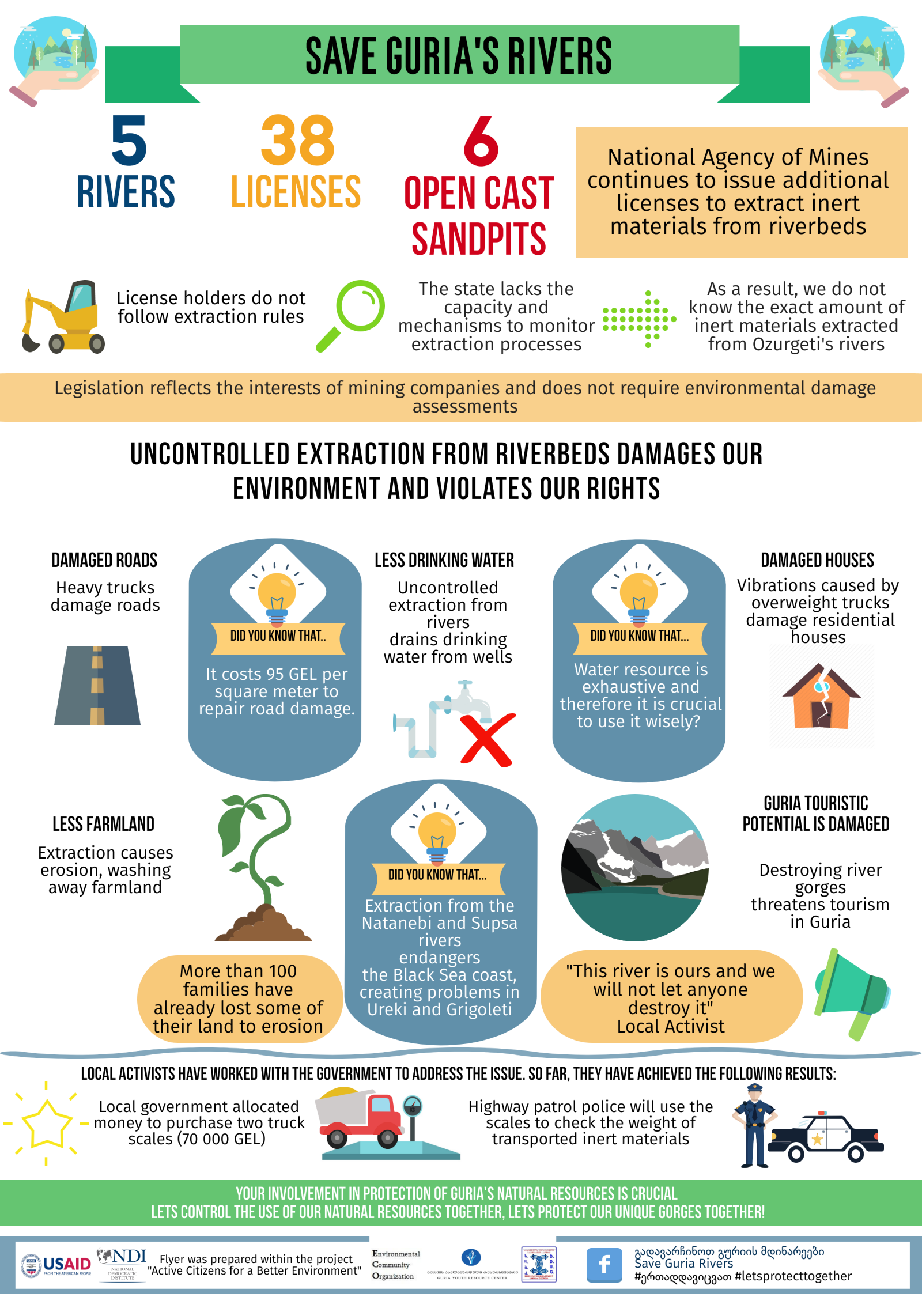
SHARE
As the climate crisis intensifies, many countries are struggling to respond. While government commitments to international climate regimes exist, these commitments have not uniformly resulted in more sustainable environmental outcomes. To counter narratives that democracies are ill-equipped to handle climate change, NDI is strengthening the capacity of political actors to adopt sustainable and targeted policies that advance environmentally friendly outcomes across natural resource industries and sectors. Specifically, the Institute is engaged in building solutions that are local, targeted and deliberative. Further, NDI’s work underscores that politicians can build public mandates through visible and accountable leadership, public education and engagement.
Local Empowerment in Mali: Waste Management
In 2015, the government of Mali signed a peace accord with northern armed groups, which called for a decentralization of power to local territories. With support from the National Endowment for Democracy (NED), NDI worked with the community of Koniakary in southwestern Mali to improve the delivery of basic services -- particularly waste management -- in support of governance reform. Water leaking from garbage dumps attracted disease-carrying insects; there was no existing transport system for garbage; and latrine and domestic wastewater leaked into public spaces and agricultural lands. These conditions resulted in air pollution, an increase in disease and other health issues and soil contamination.
In response, NDI supported a deliberative process that included citizens, civil society and government officials to analyze the problem, recommend solutions and develop a public education campaign. Stakeholders recommended creating a garbage collection system and a septic system for toilets. A public education campaign on youth radio spread the word and encouraged Koniakary residents to participate, which they did through sanitation committees, neighborhood watch committees and community cleanup days. Since then, Koniakary has created a sanitation, health and environment position in the local administration, which continues to work with citizens and public officials on environmental issues. Environmental concerns have also been integrated into Koniakary’s five-year development plan, the Program for Social, Economic and Cultural Development (PDSEC). These last steps illustrate how citizen-centered improvements to governance contribute to overall community resilience.
NDI’s Political Academies in Kosovo: Graduating Environmentally-Savvy Leaders
Like many countries globally, climate change is not part of a mainstream political discourse in Kosovo, but environmental management, conservation, and preservation clearly matter to people’s everyday lives. With funding from USAID for the Consortium for Elections and Political Process Strengthening (CEPPS) of which NDI is a consortium partner, local advocacy efforts are improving waste collection, conserving green spaces, tackling pollution and creating bike lanes. NDI Academies for women and youth leaders, and for women politicians, drawn from ethnically diverse municipalities and across political parties, train participants in political engagement and advocacy. The training is practical and hands on: each participant develops a policy brief or advocacy campaign on a critical local issue following months of consultations with experts, officeholders, political party and civil society representatives and citizens.
Georgia: Strengthening Political and Environmental Oversight
Georgia faces a number of environmental challenges -- air pollution, lead poisoning, uncontrolled riverbed mining -- as well as democracy challenges, such as weaknesses in its systems of accountability and oversight. In fact, these issues are mutually reinforcing. The lack of effective government oversight allows these environmental challenges to persist and, often, worsen; by not addressing citizen concerns about their environment, government and elected officials undermine trust in democratic institutions’ ability to represent their interests. To address these environmental issues, NDI has supported local activists to identify tangible needs in a community, build local coalitions and public support, and advocate with local, regional and national officials for their resolution.Irma Gordeladze (Founder of ECO) at Open Pit Mining Site.png

In Guria, a region in western Georgia, the uncontrolled extraction of inert materials from riverbeds was causing extensive damage. Extraction threatened water access as it drained water from wells, and at the same time, contributed to the erosion of local farmland; heavy trucks, used to move the extracted materials, damaged local roads and their vibrations destabilized houses along their routes. In response, NDI, with support from USAID, worked with three civic partners to develop an advocacy campaign that analyzed the environmental issues and governance gaps, mobilized citizens and engaged local officials. NDI’s civic partners recognized the core problem was a lack of government capacity to effectively monitor the extraction and transportation process. Through consultations with government officials, other civic actors and citizens, NDI’s partners identified the purchase of truck scales as a solution that would equip government actors with the information needed to better understand and address mining damage. Using knowledge and skills learned through NDI-supported consultations on power dynamics and diverse communication tools, local activists communicated their recommendation to a wide audience and generated public pressure on local officials. As a result, NDI’s civic partners were able to secure municipal funds to purchase truck scales, which will allow relevant authorities to more effectively monitor the volume of material transported. Today, NDI’s civic partners continue to monitor extractions as well as the local government’s use of funds to purchase and install the truck scales.
Evaluated together, NDI’s efforts to expand open and inclusive policy processes on environmental issues underscore the significance of participatory democracy in advancing outcomes for environmental sustainability. If climate change is the largest collective challenge ever faced, it must be addressed collectively. If climate change is complex because its effects are highly localized, then bottom-up action is imperative to implement effective environmental policies at the national and international levels. Lastly, if corruption is one of the greatest threats to implementing large-scale environmental reforms, then strengthening mechanisms of openness and transparency is constructive and important.
Author: Lauren Van Metre is a Senior Advisor for Peace, Security and Democratic Resilience for Peace and Security, Priority Initiatives team
NDI is a non-profit, non-partisan, non-governmental organization that works in partnership around the world to strengthen and safeguard democratic institutions, processes, norms and values to secure a better quality of life for all. NDI envisions a world where democracy and freedom prevail, with dignity for all.




